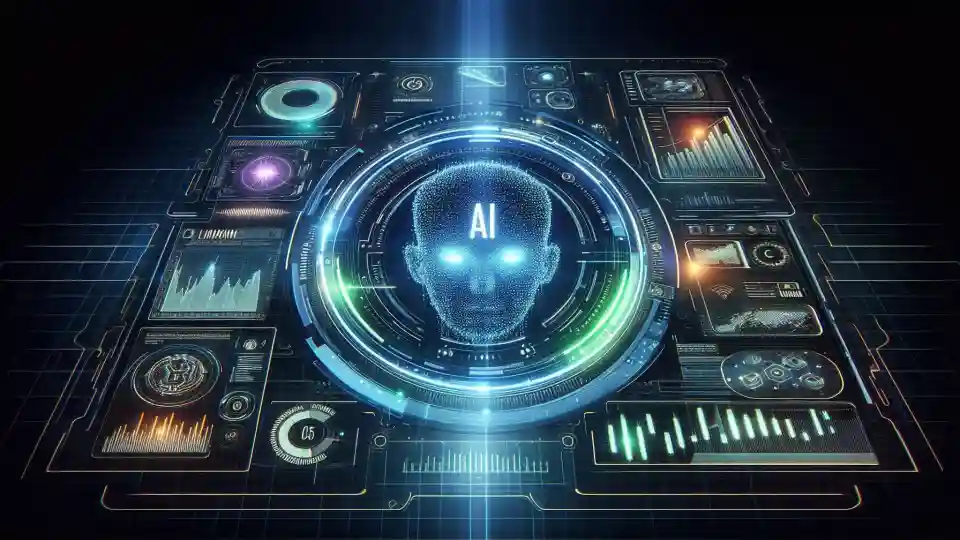In recent years, artificial intelligence (AI) has emerged as a game-changer in the field of drug discovery and medical research. Traditional drug development methods are often time-consuming, expensive, and fraught with high failure rates. The integration of AI-driven solutions has significantly accelerated the drug discovery process by enabling faster predictions of molecular structures, identifying potential drug candidates, and optimizing clinical trial strategies.
The Top 10 AI Tools for Drug Discovery & Medical Research leverage deep learning, neural networks, and molecular modeling to provide unparalleled insights into disease mechanisms and therapeutic development. With pharmaceutical companies and research institutions increasingly adopting AI, these tools are playing a crucial role in advancing personalized medicine, identifying novel drug targets, and streamlining the research workflow.
From protein structure prediction to AI-driven lab assistants, the Top 10 AI Tools for Drug Discovery & Medical Research are revolutionizing how scientists develop new drugs and treatments. This article delves into these powerful tools, their impact on the pharmaceutical industry, and how they are shaping the future of medical research.
Top 10 AI Tools for Drug Discovery & Medical Research
1. AlphaFold 3 by DeepMind
AlphaFold 3, developed by DeepMind, is one of the most revolutionary AI tools in the pharmaceutical and biotech industries. It builds on the success of its predecessors, AlphaFold and AlphaFold 2, which transformed protein structure prediction. The latest version, AlphaFold 3, goes beyond proteins, predicting interactions with DNA, RNA, and other molecules.
One of the key reasons AlphaFold 3 is a game-changer in drug discovery is its ability to significantly reduce the time required for protein structure determination. In traditional methods, solving protein structures using X-ray crystallography or cryo-electron microscopy can take years. However, AlphaFold 3 provides highly accurate predictions in mere hours.
The model’s success has been recognized globally, with its developers, Demis Hassabis and John Jumper, winning the 2024 Nobel Prize in Chemistry. This AI tool is now being widely used by research institutions, biotech companies, and pharmaceutical firms to accelerate the drug discovery pipeline.
2. AIDO by GenBio AI
GenBio AI’s AI-Driven Digital Organism (AIDO) is another groundbreaking platform among the Top 10 AI Tools for Drug Discovery & Medical Research. AIDO is an integrated AI system that employs multiscale foundation models to simulate biological processes across various levels, including DNA, RNA, proteins, and cells.
By leveraging deep learning and computational biology, AIDO enables researchers to predict biological interactions, optimize drug designs, and accelerate preclinical testing. The platform has been instrumental in identifying novel therapeutic targets and personalizing treatments for rare and complex diseases.
3. Isomorphic Labs
Isomorphic Labs, a subsidiary of Alphabet Inc., is pioneering AI-driven drug discovery. Using DeepMind’s AlphaFold technology, this AI platform focuses on uncovering novel drug targets and designing optimized therapeutic compounds.
In 2024, Isomorphic Labs entered strategic partnerships with pharmaceutical leaders such as Novartis and Eli Lilly to enhance AI applications in drug discovery. These collaborations have led to groundbreaking innovations in predicting molecular interactions, identifying drug candidates, and optimizing compound formulations.
4. Cerebras Systems
Cerebras Systems offers high-performance AI computing for drug discovery and medical research. Its CS-1 platform is specifically designed to handle the massive computational workload required for training deep learning models in genomics and proteomics.
Pharmaceutical giants like GlaxoSmithKline and AstraZeneca are using Cerebras’ AI-driven solutions to accelerate drug discovery. The CS-1 reduces training time for complex models, allowing researchers to analyze vast genomic datasets quickly and efficiently. This enhanced computational power is instrumental in identifying biomarkers, optimizing clinical trials, and developing precision medicine.
5. Computational Resource for Drug Discovery (CRDD)
The Computational Resource for Drug Discovery (CRDD) is a suite of AI-powered tools designed to assist in drug-target interaction prediction, protein function analysis, and therapeutic peptide design.
Key tools within the CRDD platform include:
- RNApred – Predicts RNA-binding proteins essential for gene regulation.
- ATPint – Identifies ATP-interacting residues in proteins, crucial for enzymatic function.
By automating various aspects of drug discovery, CRDD is helping researchers identify promising compounds more efficiently, significantly reducing the time and cost associated with early-stage drug development.
6. Antiverse
Antiverse is one of the leading AI-driven antibody discovery platforms. It leverages deep learning to design antibodies that can effectively target disease-related proteins.
One of the major challenges in drug development is designing antibodies that can penetrate difficult-to-access sites within the human body. Antiverse’s AI algorithms analyze vast datasets to predict the best antibody structures, significantly improving therapeutic success rates.
In 2024, Antiverse announced a collaboration with Nxera, a Japanese pharmaceutical company, to accelerate AI-driven drug development. This partnership highlights the growing importance of AI in antibody engineering and therapeutic innovation.
7. BioNTech’s Laila
BioNTech, in collaboration with InstaDeep, has developed Laila, an AI-powered research assistant based on Meta’s Llama 3.1 model. Laila automates numerous scientific tasks, including data analysis, literature review, and experiment monitoring.
By integrating AI assistants like Laila, research teams can focus on high-level scientific innovation while the AI handles repetitive tasks. This dramatically increases efficiency, leading to faster breakthroughs in drug discovery and medical research.
8. Exscientia
Exscientia is at the forefront of AI-driven drug design. It integrates deep learning with molecular modeling to identify and optimize drug candidates at an unprecedented speed.
One of Exscientia’s unique capabilities is its ability to design small-molecule drugs with enhanced efficacy and reduced side effects. Several pharmaceutical companies have already partnered with Exscientia to expedite the discovery of novel therapeutics for cancer, infectious diseases, and neurological disorders.
9. Healx
Healx specializes in using AI to find treatments for rare diseases. Traditional drug development rarely focuses on rare diseases due to their limited market potential. However, Healx’s AI-driven approach enables the rapid identification of existing drugs that can be repurposed for rare conditions.
By analyzing extensive biomedical data, Healx helps researchers uncover new therapeutic opportunities for orphan diseases, providing hope for patients with limited treatment options.
10. DeepMind’s AI Lab Assistants
DeepMind’s AI lab assistants are transforming scientific research by planning experiments, predicting outcomes, and optimizing laboratory workflows.
These AI-driven assistants enhance reproducibility in research, assist in designing experiments, and facilitate interdisciplinary collaboration. Pharmaceutical companies and research institutions are increasingly integrating these AI assistants to streamline laboratory processes and accelerate drug development.
Conclusion
The Top 10 AI Tools for Drug Discovery & Medical Research are reshaping the pharmaceutical landscape, making drug development faster, more cost-effective, and highly efficient. From predicting protein structures with AlphaFold 3 to designing antibodies with Antiverse and optimizing lab workflows with DeepMind’s AI assistants, these cutting-edge tools are transforming medical research.
AI’s role in drug discovery is only expected to grow as technology advances, unlocking new possibilities in personalized medicine, precision therapeutics, and rare disease treatments. As pharmaceutical companies and research institutions continue to embrace AI, the future of drug discovery looks brighter than ever.
By leveraging these Top 10 AI Tools for Drug Discovery & Medical Research, scientists can push the boundaries of innovation, ultimately leading to faster cures and better treatments for patients worldwide.











Leave a Reply